Many argue that sanctions are "ineffective". That’s false. They are already highly effective in undermining Russian military efforts and can be made even more efficient. They can guarantee that Russia loses this war if they are goal-oriented and not moral crusade-oriented🧵 
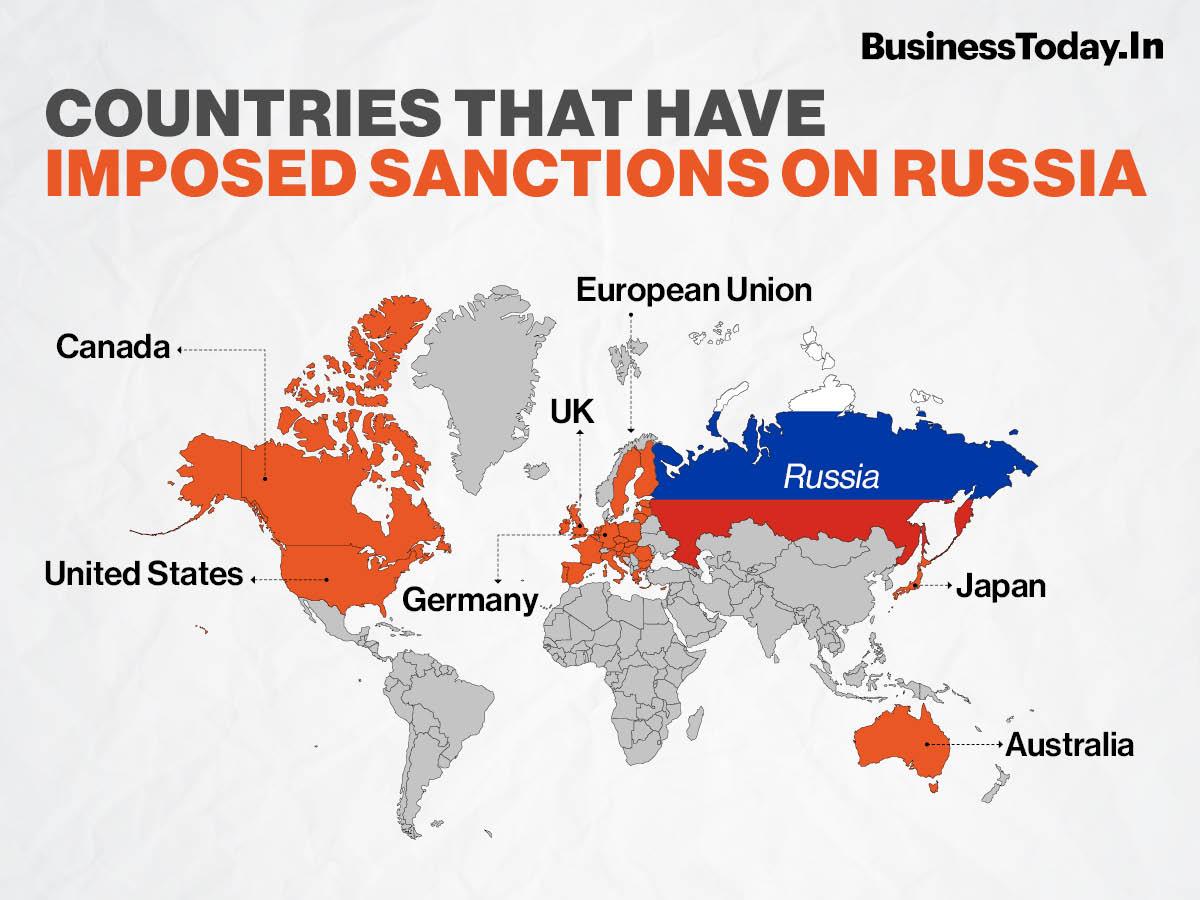
What would moral crusade oriented sanctions look like? Inflict economic damage, so that population revolts and overthrows the regime. That's an imbecile idea that never really worked and probably never will 

Goal-oriented sanctions look differently. Maximise systemic shock in order to paralyse technological chains. That will lead to a military defeat, which will entail the fall of regime. That's a great idea which usually works. It worked out with the USSR for example 

Two previous Russian regimes - Russian Empire and the USSR - fall exactly this way. Regime launched a small victorious war against an obviously inferior enemy, considering that the victory is guaranteed. Regime can't shut up about how weak and pathetic the enemy is 

And yet, this hubris works against you. With first defeats from an enemy whom you described as so much inferior, your mythos (=power) crumbles. You're very unlikely to survive that, even if no enemy soldier ever set foot on your territory. That's how Russian Empire and USSR fell 

In both cases Russia was materially far superior than its enemy. It had more people, more resources, stronger industry. So if Russia respected its enemy just a little, it could have won. But it didn't respect them at all. Russian disrespect of Japan for example looks stunning 

Interestingly enough, international public opinion and media largely shared this point of view. They also disrespected Japan and usually took Russian victory as guaranteed. After all, Russians are white - of course they'll crush those Asiatics 

Consider how they painted Japanese artillery. This hubris impressed me when reading Kipling's memoires. He visited Japan, saw their military manoeuvres and mocked this nation of "blind imitators". Pretty much everyone viewed Japanese as frauds and expected they quick defeat 

As a result, Russian defeats - which were materially speaking not that impressive - had devastating moral effect. Empire had men, had resources, had industry. But it's mythos was destroyed. Absolutism fell and very quickly the monarchy fell, too 

Ergo. Poverty does not topple regime. Material sufferings do not topple regime. But military defeat in a small victorious war absolutely does. This is typical for Russian history and if you consider history of other regions, like Latin America, it starts looking as a general rule 
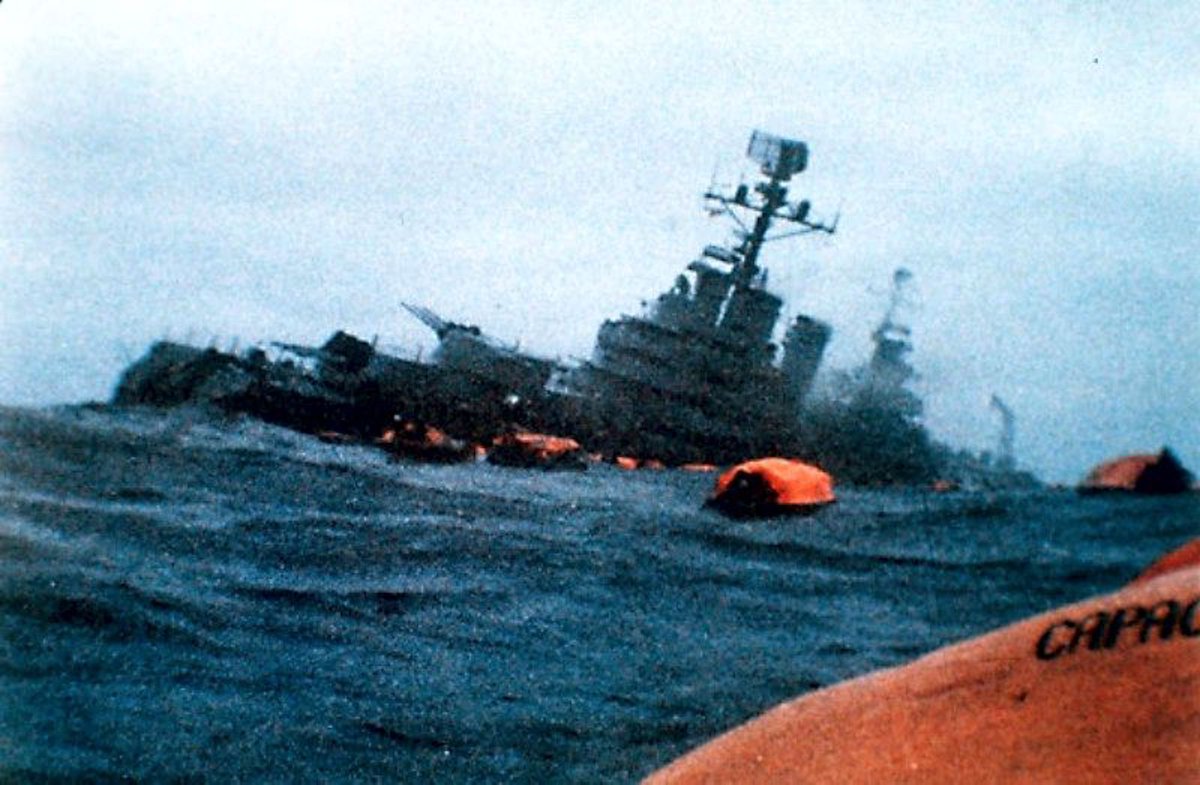
Economic sufferings in Russia are now absolutely obvious. Here you see two women fighting over a frying pan in the last day before IKEA closes its business in Russia
Prices on literally whatever are skyrocketing. TikTok is full of videos where people discuss the incredible prices on food and well, everything
Here you see people queing to get cash from an ATM in the very late hours. That's understandable. In the times of crisis you quickly realise that cash is real money whole money on bank accounts are not so real to be honest
Today Russian Central Bank prohibited people to buy cash dollars or euros for three months. Interestingly, they didn't prohibit converting rubles to usd/euros on your bank accounts. You are totally allowed to keep usd/euros in (Russian) banks. You're not just allowed to buy cash 

If you think about it this is a smart decision. Cash is hardly controllable and greedy citizens might sneak it from the Motherland. Meanwhile whatever usd/euros you have on your accounts can be frozen, forcibly converted to rubles etc at any moment. So you can keep it for a while
At this point people started realising that previous standards of life are gone. That's people queuing to McDonalds to get one last touch of fast-food before this chain stops its operations in Russia
At this point authorities are closing regional media en masse. They are not oppositional, it's just local news. But these local media give a picture of a general economic collapse: I just took some random news from Bryansk, Rostov, Saratov and Volgodonsk 




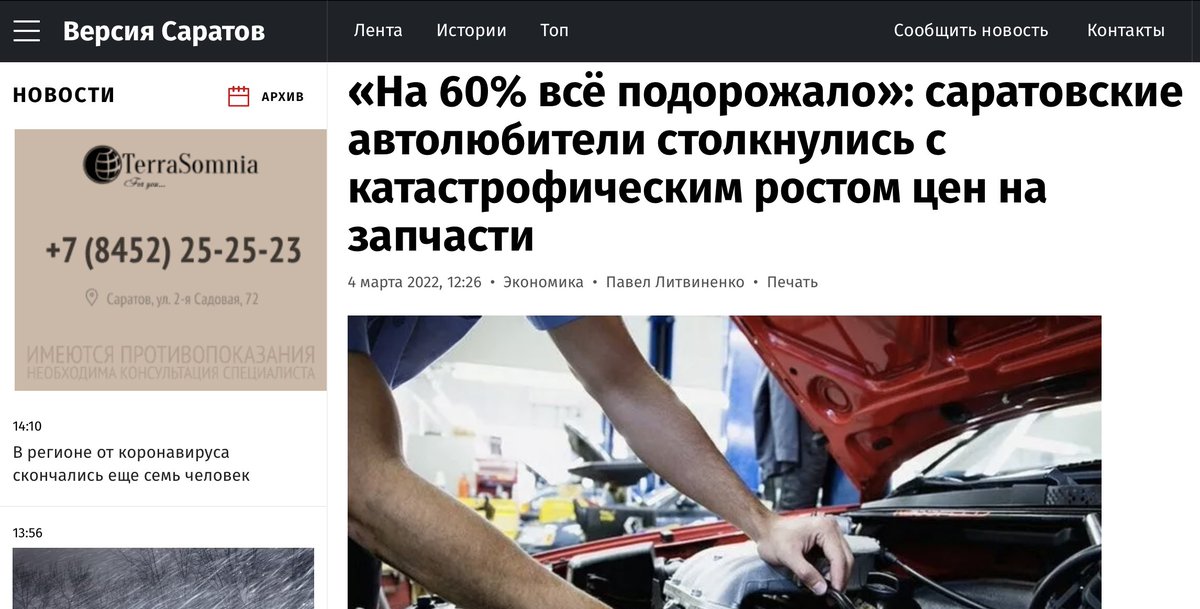


Destruction of technological chains is critical damage when it happens amidst of a war. And it has already started. Largest car producer Avtovaz started halting production. Renault and Hyundai factories in Russia halted, too. Why? Shortage of microchips 

Microchips are a major bottleneck in modern industry. Russia doesn't produce them. China theoretically could fill the gap but it will take years. So any sort of complex manufacturing in Russia will critically depend on getting microchips through proxy firms. A point of failure
It seems that many factories are already stopping production and will be firing workers. Who is especially vulnerable? Well, those working for domestic market. Domestic demand destroyed, we don't need domestic producers anymore. We'll have major layoffs soon 

Those working for domestic market are being fired, because there's no work for them now. Those working for export market striking, because hyperinflation destroyed their wages. This is not a major phenomenon yet, but a petrochemical plant in Nizhnekamsk is striking already 

One of the most obvious markers of decline is Putin's face everywhere. Why do they put so many billboards with Putin? Well, previously there used to be commercial billboards here, but since nobody's buying advertisement anymore, we'll put Putin instead 

Situation on export markets is a bit more complicated. As I described here, Russia is critically dependent upon exporting natural resources to the West. Blocking this export flows would inflict a mortal blow on Putin's economy and the regime
https://twitter.com/kamilkazani/status/1499855858456567809
Are these export flows being stopped? Not really. As you see, EU natural gas import from Russia has been quickly growing since the beginning of March (dark red line). This increase in EU gas imports allows Russian state companies to profit lavishly and fills Putin's coffers 

On a bright side, we're already having acts of sabotage such as British dockers refusing to unload Russian tankers. Seven of them are already rejected service by the the docker unions. If Continental Europeans team up, it will create a major problem for Russian exports 

And yet, even without Russian exports stopped completely, severing technological import from the West will disrupt Russian technological chains. Russian factories use Western industrial machines (Russia produces almost none of its own), details, technologies, IT products
Russian industry widely uses Cisco computer systems. Now Cisco stopped its operations, ceased maintaining equipment and is blocking it. That's an internal document of the Main Radio Frequency Center, managing Russian radio infrastructure. Ofc they use Cisco. Ofc they're alarmed 

Until this moment Russia was reliant on export of natural goods to the West and on technological imports from the West. Nowadays technological import will be very hard, expensive and vulnerable coming through a few bottlenecks such as Georgia which didn't sanction Russia yet
Could there be potential alternatives to the technological dependence from the West? Yes, China. Putin is now absolutely determined to reorient to China and if he stays in power, Russia will become Chinese economic colony with Chinese companies buying all assets at dump prices 
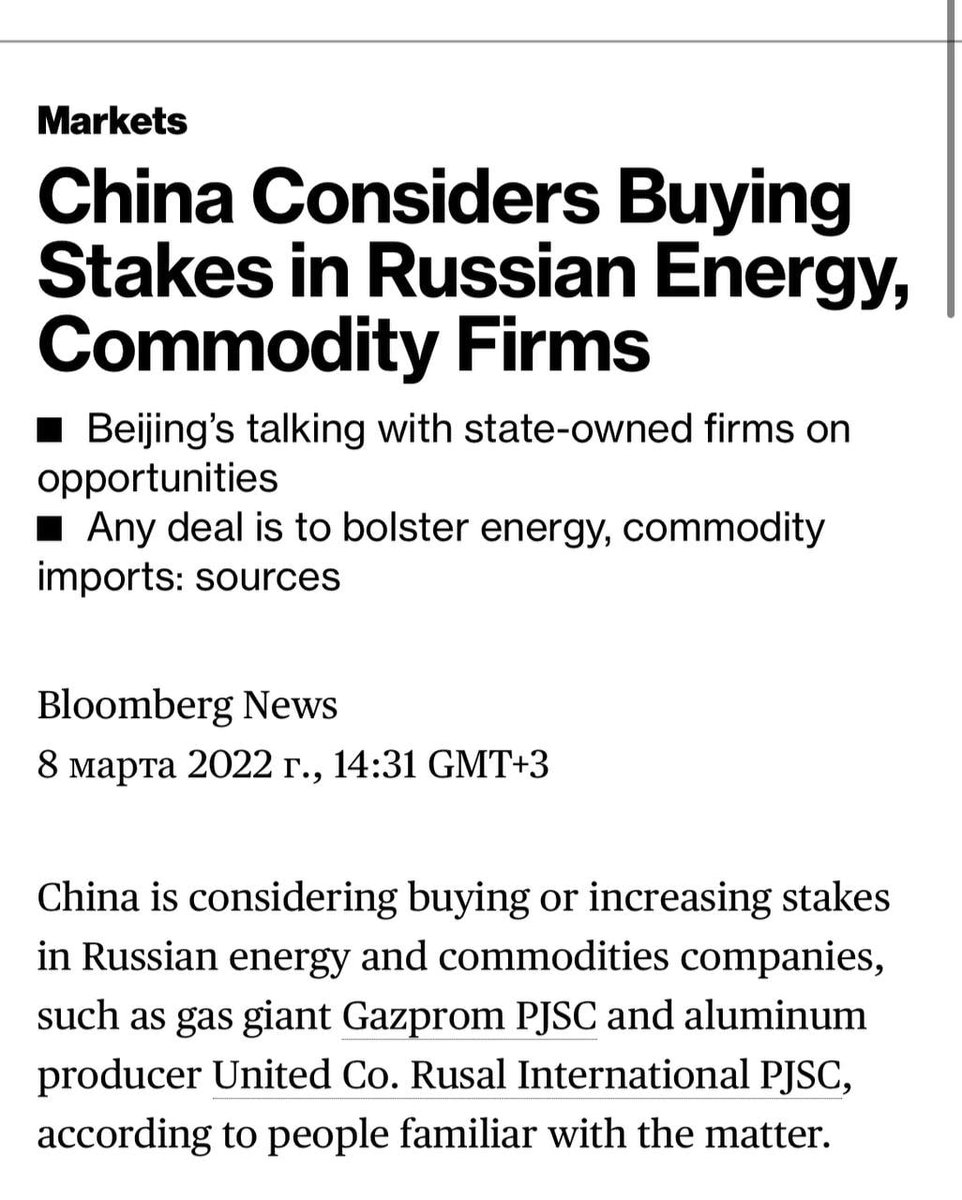
Russian economic history could look somewhat ironic:
1. Stalin's slaves built industry at the cost of millions of lives
2. Yeltsin transformed these plants to Ltd's
3. Putin destroyed their value in a war
3. Chinese bought these slave-built assets for nothing
Trust the plan
1. Stalin's slaves built industry at the cost of millions of lives
2. Yeltsin transformed these plants to Ltd's
3. Putin destroyed their value in a war
3. Chinese bought these slave-built assets for nothing
Trust the plan
But there are several problems with this plan. Firstly, Russian-Chinese partnership is veeeery unequal. China can have any trade partner, Russia has only China. Ofc Chinese will skyrocket the price of their exports to Russia (done) and buy Russian resources for nothing (done) 
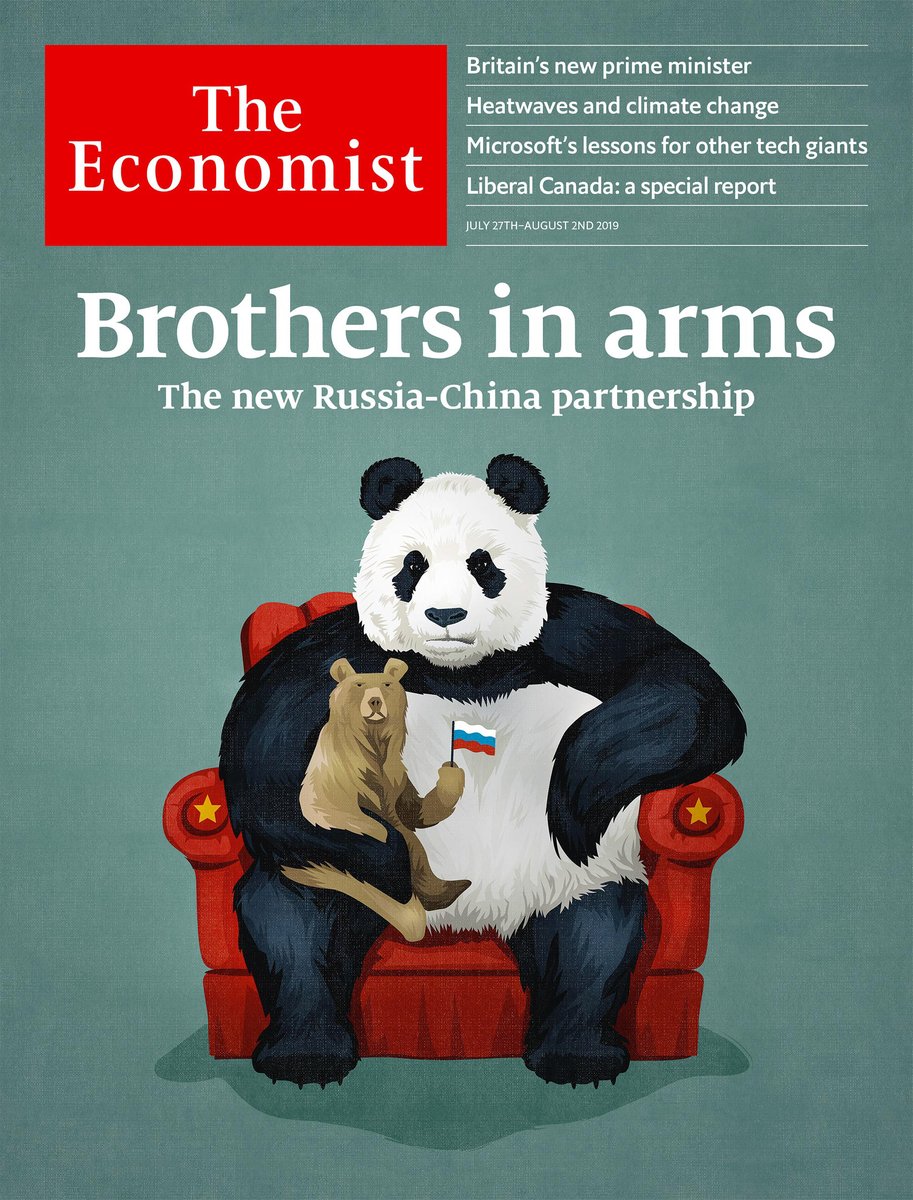
That's the price of gas Russia had be selling to China via the Power of Siberia pipeline *before* it quarrelled with the West. Russia was selling its gas to Chinese at huge loss even when Russian negotiating power was strong. Now it's much weaker and Russian gas gonna be cheaper 

Secondly. Russian government institutions never really reached a consensus regarding relations with China. Security Council was promoting economic cooperation with Chinese for geopolitical reasons. Meanwhile Federal Security Service was sabotaging it viewing it as a security risk
Of course now Russia is consumed by existential struggle with the West. Now it will accelerate integration with China by all means possible. But it seems that Federal Security Service had no idea of Putin's decisions to launch a conflict in advance
It seems that the state security didn't know or believe there will be such a huge, abrupt escalation of conflict. They probably designed their policy on assumption that the conflict with the West will be gradual, take many years and there will be no sudden moves from any side
In this context it is understandable why they sabotaged economic integration with China. China is the only neighbour of Russia which is objectively stronger. Very much stronger and its power growing. So these guys tried to minimise technological import (=dependency) from China
But their assumptions were wrong. Putin did escalate, did it abruptly, most probably without consulting anyone or notifying them. Hypothetically, if he informed them of his decision 2-3 years in advance, they would've stopped sabotaging integration with China
Russia will integrate with China at any cost. But this is a task that should've been done before the war. The war is a systemic shock itself. Sanctions and severing technological from the West make it even harder. Russia might not have time to complete this work before collapse
This is very much exacerbated by logistical problems. Russian industrial heartland in Europe and Urals is connected with China by the Transsiberian railway. Which is itself a huge bottleneck and this point of failure. One single accident and the traffic is disrupted 

Consider the accident in 2021. Flood damaged the bridge and Transsiberan railway stuck. In 5 days they built new bridge, but by that time 500 trains were waiting. Traffic schedule was disrupted for very long. This is a super vulnerable bottleneck connecting Russia with China 

Finally there's factor that will increase the systemic shock on Russia economy. It will prevent import substitution, hurt exports, hamper integration with China and obstruct domestic production. I'm talking of brain drain. Here you see Russians quieting to Turkish airlines office 

All somewhat smart people in the country understand how terrifying the perspectives are. People are leaving en masse wherever they can. The most popular destination of emigration is Tbilisi, all the flights are booked. So people fly to Yerevan, Baku instead, just to get out 

First all flights to Georgia were sold out. Then to Armenia and Azerbaijan. But ppl still wanted to leave so they started leaving to the only destination nearby - where you could still get tickets to, to Central Asia, primarily Uzbekistan. Fergana, Tashkent, Samarkand are flooded
Who is leaving? Well, one obvious answer is - dissidents and whoever disagrees with what's happening. That's not wrong. But another answer is: whoever has marketable skills that make them employable on the international market. Tech, IT, engineering, hard sciences
Anecdotally my friend just flew from Moscow to Fergana with "half of Fiztech and half of Scholtech" who were leaving to Uzbekistan. Fiztech (МФТИ) is the top, most rigorous Russian university for the hard sciences. They look down upon Moscow Uni grads, considering them as frauds 

Skoltech was Medvedev's project. They tried to create a new innovative cluster and built a new university + SEZ for that task. What they certainly succeeded in, was in keeping many bright STEM folk in Russia. But now they're leaving to Uzbekistan asap, before the door closes 

Of course the door will close soon. Putin already started using "carrot" giving many new privileges to IT specialists and companies, most importantly, freeing the IT workers from the military draft. What does it mean? It means soon he'll use stick to stop the brain drain 

State owned companies use the stick directly and prohibit their workers to leave the country. Consider this executive order by Rogozin, the CEO of a state owned Roskosmos aerospace company. He prohibited his employees to go abroad, correctly understanding they might not return 

It seems border guards are instructed not to allow the IT specialists out. I made screenshots from Russian chats on how to leave the country. There's only one rule: tell you're not from IT. Swear you are humanities grad, they'll let you out of Russia. Don't confess you're a coder 







Let's sum up. Russia is so deeply integrated to the Western market that re-directing to China is a long arduous task which requires long preparation. And this work hadn't been done before the war, largely because security officials had no idea it will happen
West severing technological exports to Russia will hurt Russian technological chains on all levels. Import of machines stopped, import of details stopped, maintenance stopped, existing digital and hardware infrastructure blocked. That is a devastating systemic shock
Theoretically Russia could just switch to China. But even ignoring that China is not that self-reliant itself (it's also a micro chips importer), it's not that easy. Chinese are not gonna altruistically help, they'll rip Russians off, using their leverage to its fullest
Russian industrial powerhouses in Europe and Urals are connected with China ин the highly vulnerable Transsiberian railway. One accident on this bottleneck will greatly hurt both imports and exports
Finally, brain drainwill hamper any complex production or technological process in Russia. Even apolitical or loyalist people understand that Russian economic future will be catastrophic. So if they feel they have marketable skills, they leave. Russia loses its tech folk quickly
One great idea would be to promote this brain drain, scale it up. If Western countries can take some of these people, give more work permits, that's great. If they can't a great idea would be creating employment where they already stay - in Transcaucasia and Central Asia
Transcaucasian and especially Central Asian economies are deeply integrated with Russia. Thus Russian economic collapse will entail the socio economic collapse of Central Asia as a second order effect. These countries live off money transfers from Russia and will crumble without 

Creating employment in Central Asia can solve both of these problems. First, prospect of at least some wages abroad will lure many more people out of Russia. Lots of them hesitate to leave because they don't know what to do next. And when they make their mind, the door will close
Second, it can alleviate current problems of Central Asia and potentially brighten future of some of its underdeveloped regions. A great idea could be - fund a number of vocational, tech, STEM, coding whatever educational centres providing short term courses for locals
I would suggest underdeveloped regions, Kyrgyzstan and Tajikistan. First, they're in biggest danger of socio-economic collapse right now and urgently need some cash inflows. Second, their economic situation is so bad, few'll choose them over Uzbekistan or Kazakhstan
Creating such clusters in the underdeveloped regions can 1) alleviate their current hardship 2) increase emigration from Russia 3) brighten their economic prospects in the long run. It's possible that many underprivileged locals will acquire valuable marketable skills as a result
Regarding the sanction policy, I believe that many sanction regime failed because they pursued mutually contradictory goals - achieve some pragmatic results and launch a moral crusade. Unfortunately, you almost never can do both, so you need to choose one
Toppling a regime directly via sanctions is not pragmatic, it is certainly a crusade, and a quite Protestant one. This community failed, but they can redeem themselves through collective morally motivated efforts for the common good. Sounds good, doesn't work
There are many reasons for that. First, if a community was really able to do that, it would do that long ago and the current situation wouldn't arise in the first place. Meanwhile countries like Russia suffer from any forms of collective action having been uprooted for centuries
Western people typically misunderstand Russia. They buy cheap propaganda of its "collectivism" & "conservatism". Both are BS. Russia is extremely individualistic, extremely averse of any collective action. And ofc they're not conservative at all, just look at abortion statistics
It's super individualistic, super pragmatic society which doesn't care about any abstract "values" and ofc no form of collective action on basis of these values is possible. Russians may talk about ideological agenda, but it's largely BS and isn't reflected on individual level
Just to give you an example. In 2015 Turkey shot Russian military plane. There was huge propaganda campaign against Turkey, all the media was discussing how barbaric they are and how we should retake the Constantinople. Social media users mostly agreed or didn't object
But once they allowed flying to Turkey again, all the Turkish hotels were fully booked by Russians. Many ideologues were crushed by those news. They saw that population can talk of revenge and of Christian reconquest but it doesn't reflect on their individual decisions *at all*
Speeches can be patriotic and ideologically-motivated, but individual decisions are overwhelmingly pragmatic. They're also highly individualistic because no form of successful collective action is really possible in a country where such actions have been historically extirpated
For this reason, aiming sanctions to boost ideological motivated collective action is insane. It's not gonna happen. There will be individual rebels, like this guys who tried to burn down military recruiting station in Voronezh, but there will be few of them. They'll be crushed 

Instead sanctions should focus on destroying supply chains via restriction of technological import, obstruction of export flows and export revenues (lifting sanctions of Venezuela and generally increasing oil and gas production is a great idea) and maximising brain drain
I would even suggest maximising hand drain. There are not so many skilled technicians or skilled workers in industry. Lure them out. Yes, luring out turners doesn't sound as sexy as luring out coders, but it might increase systemic shock even more
I'd even say that any draftable male who emigrates is one less draft male to draft. I totally understand that what many Western observers want to see is a community redeeming itself via a mass collective action, but I don't believe such an action will really topple Putin 

Voting by legs, emigrating, sounds less sexy, but it will be much more effective in practice. It's easy to do, individualistic, pragmatically motivated. Which means that if possible it will be done on huge scale, and can easily rob regime of its most competent professionals
Using this collective-level stick of sanctions and individual-level carrot of refuge (literally wherever) can easily lead to the collapse of technological chains, entailing the military defeat and thus fall of the regime. It happed in 1905, in 1991, so can happen now. End of 🧵
• • •
Missing some Tweet in this thread? You can try to
force a refresh





